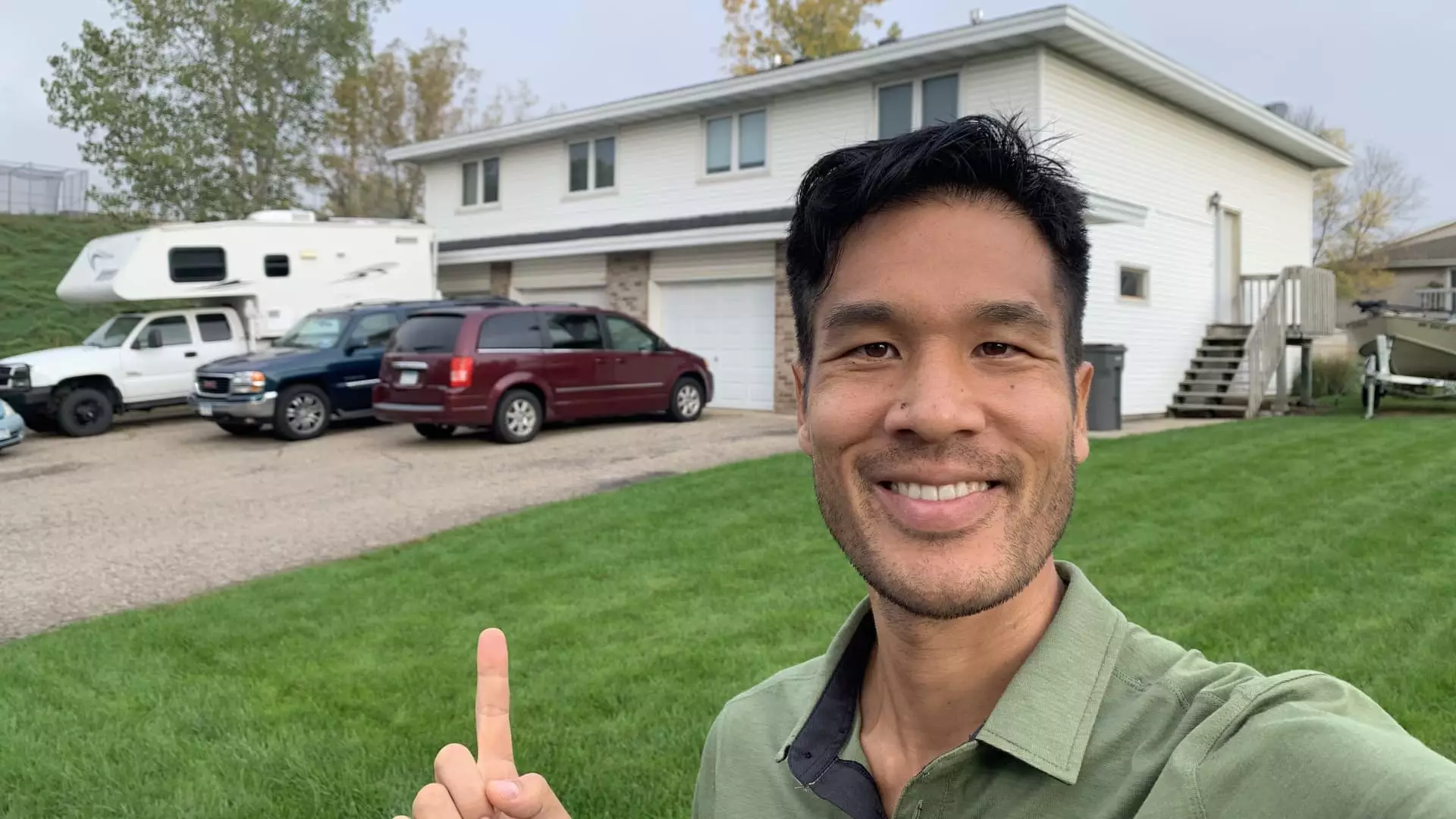Financial independence is a concept that resonates with many, but its meaning can vary significantly from person to person. At its core, it signifies a state where an individual possesses sufficient wealth to live life devoid of reliance on traditional employment. The road to achieving this status can often appear intimidating; however, the pivotal strategy that remains effective for countless individuals is the practice of living below one’s means and channeling the savings into investments. Shu Matsuo Post, at the age of 38, epitomizes this principle through his impressive $2 million real estate portfolio, which he has meticulously built over the last seven years.
The Journey Begins
Matsuo Post’s financial journey is illustrative of the principle that substantial achievements often require concerted effort and unwavering commitment. Alongside his wife, he habitually allocated over 50% of their combined income toward real estate investments. The fruits of their labor are evident in their current ownership of multiple rental properties across the United States and Japan. His mantra, which emphasizes the importance of personal fulfillment over monetary gain, captures the essence of his financial strategy: “I’m very fortunate to be able to say this, but I don’t have to work for money,” he reflects, highlighting a mindset shift that liberates him from the conventional constraints of employment.
Post’s backstory is equally compelling. His professional endeavors have spanned several industries, including journalism, retail, and technology. Born in Japan and moving to the U.S. at 15, he spent nearly a decade there, nurturing his education and laying the groundwork for his future career. A period in Hong Kong broadened his perspective before he returned to Japan, his home, to build a life with his wife, Christina. This series of career movements laid the foundation for his eventual success in real estate, as each experience enriched his understanding of diverse markets and economic landscapes.
In 2017, following their marriage, Matsuo Post and Christina made a significant decision to consolidate their finances. Initially, they invested in index funds and exchange-traded funds (ETFs), but soon grew restless watching gradual returns in the stock market. The couple discovered real estate as a more active investment medium and decided to embrace a lifestyle of frugality. Living on Christina’s teaching salary, they earmarked Shu’s income for investments, reportedly saving an astounding $250,000 before acquiring their first property— a duplex in Minnesota.
Key Investment Decisions
The duo made their first property purchase in 2018 for $216,500 and quickly realized the potential of real estate investment. Within a year, they expanded their portfolio by adding three more rental properties located in Minnesota and New York. However, challenges arose in September 2022 when Matsuo Post faced an unexpected layoff due to his company’s closure. Instead of despair, this transition afforded him an opportunity to reassess his career trajectory. “After being let go, I had a choice to go back to the corporate world or to start something new,” he pointed out during an interview.
The realization struck him that his financial independence rendered traditional employment unnecessary. Rather than re-entering a corporate setting, he opted for a lifestyle change that prioritized family engagement and personal fulfillment. This decision catalyzed the launch of his YouTube channel, which has amassed over 100,000 subscribers, and the establishment of his consulting firm, Post FI, designed to assist foreigners in navigating Japan’s real estate market.
Reflecting on his process, Matsuo Post elucidates several guiding principles that propelled him toward financial autonomy. He emphasizes the importance of self-investment, advocating for continual learning through books, seminars, and mentorship. “Investing in yourself is paramount,” he asserts.
Additionally, he notes that mere saving won’t lead to riches—enhancing one’s earning potential is crucial. This perspective promotes calculated risk-taking, ensuring that individuals can secure higher rewards in their investment ventures. Lastly, his commitment to frugality, asserting that they consistently saved more than half of their income, reinforces the idea that disciplined spending is essential in the journey to financial sustainability.
Matsuo Post’s narrative serves as a powerful testament to reimagining work and retirement in a contemporary context. He reflects on this journey with a profound understanding: “Achieving financial independence is paramount, but I realized that retirement from work isn’t what I truly desired.” Instead, he seeks engaged work that contributes to his purpose and financial well-being without shackling him to a conventional employment routine.
In a world where financial independence often equates to retirement, Matsuo Post stands out as an advocate for a balance between earning and living a fulfilling life. His journey offers valuable lessons for anyone looking to break free from traditional work structures and embrace a more liberated lifestyle, built on financial acumen and personal satisfaction.


Leave a Reply